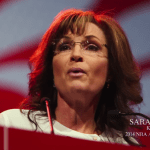Was America founded as a Christian nation? The question is in the air. On the one hand, the Restoring Honor ralliers and the “black robe brigade,” along with organizations or ministries such as Wallbuilders answer in the affirmative, recalling a hallowed founding period when America began with God. On the other hand are all who are politically disinclined to associate with the aforementioned groups, and (they would say) those who are inclined to appreciate historical nuance.
Too often, those on the Right generally think that quotations from the Founders on the need of the American nation for God or on the importance of God and faith as a substructure supporting the legal and moral framework of American society, and quotations from Alexis de Tocqueville on the generally Christian character of the American people are sufficient to prove their case. Too often, those on the Left think the simple fact that some of the Founders were Deists, or that some spoke passionately on the evils of a state church, are sufficient to prove theirs.
In such cases, the Right and the Left are not disagreeing so much as they are speaking of different things. Conservative Christians do not mean that the Founders sought to establish a theocratic state, just as they do not seek a theocracy when they speak of “reclaiming a Christian America.” There are at least four possible senses of “Christian America”:
- A demographic sense: that the vast majority of Americans were/are Christians.
- A social-moral sense: that the social-moral vision animating and permeating American society was/is (Judeo-)Christian.
- A political sense: America was founded to have a Christian government.
- A theological sense: America is especially (although not necessarily exclusively) chosen by God for a special purpose.
The first, at least in regard to the founding period, is a simple historical fact that should be beyond dispute. The second is what conservative Christians generally mean when they say that America was once a Christian nation – and could be again. The third is not claimed by anyone. The fourth is claimed by some, but can mean many things, and is a subject for another time.
There are other modulating factors in this discussion: (1) “the Founders” were a diverse bunch with divergent religious beliefs and divergent visions for the young nation they birthed; (2) those among the Founders who were not orthodox Christians may not have been aware of the extent to which they and their vision for America were influenced by the Judeo-Christian ethical and philosophical tradition; and (3) some of the ‘Deists’ among the Founders were not strict Deists who absolutely rejected the participation of God in history.
Finally, the most important nuance is (4) that when the social-moral vision animating American society is Judeo-Christian, then this same vision will tacitly influence the government and its leadership. This does not make for a theocratic state; it makes for a democracy that is swayed (though not exclusively) by Christian ideals. Thus the real heart of the question is whether it is acceptable, or whether it transgresses the founding principles (including “separation” of church and state, though conservative evangelicals rightly point out that this language is not found in any of the founding documents, and may be an unhelpful and even impossible metaphor), for voters and representatives (and perhaps judges to a lesser extent) to be guided in their voting and legislating (and judging) by their religious beliefs and values — or whether those must remain “private”.
To me it seems clear that the Founders intended for voters and representatives to be informed by their religious convictions, and that there is nothing wrong with bringing such convictions into the voting both and into the chambers of Congress or the White House. Yet some today really are arguing the opposite.
In any case, I hope these distinctions help some think through this question in a more exact manner.










